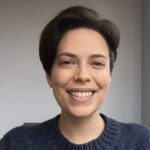 Dr. Jess McIver, Canada Research Chair in Gravitational Wave Astrophysics, Assistant Professor |
I lead the GW astrophysics group, the LIGO Scientific Collaboration group here at UBC, and the UBC-TRIUMF LISA group. I served as a co-chair of the LIGO Detector Characterization group, working at the interface between gravitational wave astrophysics and the LIGO detector instrumentation, from 2017-2020. Before I came to UBC as an assistant professor in 2019, I held a postdoctoral fellow position at the LIGO Laboratory at Caltech. I was based at the LIGO Livingston observatory during the first detection of gravitational waves in 2015, and I led the effort to validate this first detection as astrophysical. My research interests include gravitational-wave astrophysics with black holes, neutron stars, and core-collapse supernovae using detectors on Earth, like LIGO, as well as in space, like LISA. I’m also active in data science, machine learning, and characterization of large-scale physics experiment instrumentation. |
| My research areas of interest include astrophysics with gravitational waves from neutron stars and black holes, gravitational wave detector characterization and calibration, and developing analysis software tools to enable this science. I have been a member of the LIGO Scientific Collaboration for over 15 years, actively working on the detectors and analysis of LIGO data. I have developed new methods for analyzing data for continuous gravitational waves, increasing the accuracy and precision of detector calibration, and helped improve the quality of data from the LIGO detectors. I look forward to the transformational science that gravitational waves have to offer. | |
 Dr. Man Leong (Mervyn) Chan, Postdoctoral Fellow |
My work focuses on multi-messenger astronomy with gravitational wave and the application of machine learning algorithms to gravitational wave astronomy. I am currently developing a low-latency annotation pipeline for the next LVK observing run based on a machine learning classifier, GWSkyNet, that aims to facilitate electromagnetic follow-up observations of gravitational wave candidates by determining whether the candidate is of astrophysical interest. I have also developed tools for optimizing follow-up observation strategies and estimating localization errors of gravitational wave sources as well as machine learning algorithm for the detection of gravitational wave signals. A LIGO member. |
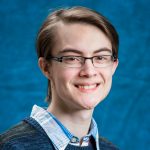 Alan Knee, Ph.D. student |
I work on parameter estimation of coalescing compact binaries via their emission of gravitational waves. The current focus of my research is looking at how the A+ upgrades to the LIGO detectors will help us resolve the relative spin orientations of binary black hole systems and the implications this has with respect to distinguishing between various formation channels. |
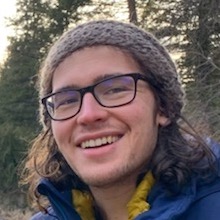 Yannick (Niko) Lecoeuche, M.Sc. student |
I am a member of the LIGO detector characterization team at UBC. My current research focuses on evaluating how non-Gaussian transient noise overlapping real gravitational wave signals affects parameter estimation for those signals. I have been part of the LIGO Scientific Collaboration for three years prior to my graduate studies, working as an operations specialist at the LIGO Hanford Observatory. |
Group alumni
| Miriam worked with the UBC LIGO team from 2020-2022. Her research with the team was focused on detecting compact binaries and studying black holes. She was a member of the LIGO Scientific Collaboration throughout my PhD, actively contributing to the detection of the first gravitational-wave signals and to the characterization of noise sources in data from the Advanced LIGO detectors. She also worked on studying theoretical aspects of black-hole horizons and developed parameter estimation methods to analyze the remnant black hole in binary coalescences as tools to test General Relativity with gravitational waves. At UBC she explored machine learning techniques to optimize usage of telescope time in electromagnetic follow up of gravitational-wave candidates, resulting in an Astrophysical Journal Letter. Read more out her publications and research products from her time at UBC on her Google Scholar page. Miriam is now a data scientist at EarthDaily Analytics in Vancouver. | |
 Nayyer Raza, M.Sc. alum |
As a member of the LIGO Burst-Supernova team Nayyer studied the gravitational waves emitted during core-collapse supernovae: violent explosions of massive stars towards the end of their life. His Master’s research at UBC focused on using the Bayesian inference algorithm BayesWave to improve waveform reconstructions of the expected signals from supernovae in LIGO-Virgo data and learn about the dynamics of the astrophysical source. Nayyer’s Master’s thesis work was published as a paper in Phys. Rev. D. Nayyer continues to collaborate with the UBC LIGO team on the GWSkyNet-Multi algorithm as a PhD student at McGill. |
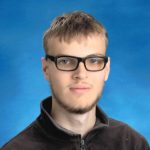 Robert Beda, B.Sc. student |
In the summer of 2020, Robert Beda was awarded an NSERC USRA to work with the UBC GW astrophysics group to understand the effects of different observatory system configurations on the quality of output data, as quantified by glitch rates. In particular, the standard reaction to approaching earthquakes changes the behaviour of seismic isolation systems so as to potentially influence data quality. Understanding this relationship may contribute towards development of observatory systems that collect even better data despite stressful environmental conditions. Learn more from Robert’s Github gwpy scripts. |
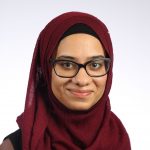 Maryum Sayeed, B.Sc. alum |
Maryum Sayeed graduated from the University of British Columbia with a Combined Honours in Physics & Astronomy B.Sc. degree in May 2020 after working with the UBC GW astrophysics group on the impacts of non-stationarity data on astrophysical parameter estimation of compact binary coalescences. Maryum put her LIGO data analysis skills to work in the technology consulting sector in Alberta, and is now an Astronomy PhD student at Columbia University. |
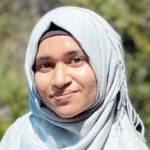 Sabiha Bhuiyan, B.Sc. alum |
Sabiha Bhuiyan graduated from UBC with honours in May 2022, and started graduate school at UBC in Fall 2022. Her honours thesis research aimed at characterizing to what extent and how ground tilt induced by vertical ground motion from microseism at the LIGO detectors sites couples (via the control system) into horizontal differential motion between vacuum chambers of optical cavities. In particular, she explored how this coupling transfers from the ground to the optics through the stages of seismic isolation infrastructure. This involved transforming and visualizing data from the relevant sensors. |
 Nikolas TC Boily, B.Sc. alum |
Nikolas Boily graduated from UBC’s Physics and Astronomy program in May 2022: his project characterized spin information of low-mass compact binary black hole mergers. Using a Bayesian inference pipeline, he analyzed our ability to measure the spin properties from computer-generated gravitational wave signals. This work will help future LIGO-Virgo observing runs by providing a statistical method characterizing these spin measurements. We hope the results of this work will bring us closer to understanding the formation of low-mass BBH systems, and possibly how stars can evolve into low mass binary black holes. |
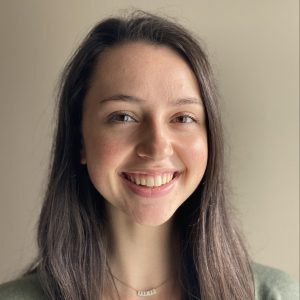 Sarah Thiele, B.Sc. alum |
Sarah Thiele graduated from UBC with honours in May 2022, and started graduate school at Princeton University in Fall 2022. Her honours thesis with the team explored using the Temporal Outlier Factor to characterize LIGO data. She first worked with LIGO detector characterization team for the Fall 2020 term. The primary focus of my project was characterizing transient noise signals called “glitches” to create a veto which can differentiate between glitches and astrophysical signals. This involved investigating compact binary coalescence (CBC) parameter estimation on short-duration glitch sets, analyzing trends in waveform injections classified by a convolutional neural network called Gravity Spy, and other approaches to aid in forming a differentiation metric. Sarah’s work with the team earned her authorship on three papers: the proof-of-principle study for GSpyNetTree (preprint), a study on the characteristics of populations of glitches (Class. Quant. Grav.) and a report of LIGO Detector Characterization efforts for the fourth observing run (preprint). |
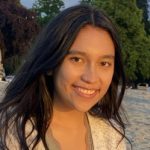 Sofía Álvarez López, Universidad de Los Andes student and Mitacs Globalink Research Internship awardee |
Sofía graduated from Universidad de Los Andes in 2023 with a degree in Physics and Computer Science after completing a Mitacs Research Internship at UBC in 2022 and working on her honours thesis with the UBC LIGO team. She led the pre-observing-run development of the Gravity Spy Convolutional Neural Network Decision Tree (GSpyNetTree) pipeline to automatically distinguish between gravitational-wave signals and glitches using time-frequency visualizations of LIGO detector data. After developing and training the CNN classifiers, she conducted validation studies on the model’s performance on exotic glitches not included in the original training set and on spectrograms in which signals and glitches (or parts of them) simultaneously occur. Her work was published in a paper in Classical and Quantum Gravity. Sofía is now a PhD student at MIT and continues to collaborate with the UBC LIGO team on GSpyNetTree and investigations of the impact of detector glitches on GW source property inferences. |
 Vaibhav Garg, Delhi Technological University student and Mitacs Globalink Research Internship awardee |
As a Mitacs GRI awardee in 2022, Vaibhav investigated new noise sources in the Advanced LIGO (aLIGO) detectors in order to mitigate and improve the ability of the detectors to prepare them for the next observing run (O4). Vaibhav used daily and hourly glitchgrams to search for abnormalities, generating omegascans to classify them into glitch classes and reported them for further investigation and mitigation. Vaibhav’s work was recently recognized in a paper reporting LIGO Detector Characterization efforts and results for the fourth LIGO-Virgo-KAGRA observing run (preprint: arXiv 2409.02831). |
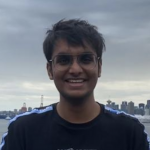 Neev Shah, Indian Institute of Science Education & Research student and Mitacs Globalink Research Internship awardee |
As a Mitacs GRI awardee in 2022, Neev developed a novel statistical distinguisher between real astrophysical signals and glitches in the LIGO data. He created a simulated astrophysical injection set spanning a wide range of parameter space in mass, spin, and distance and analyzed their posteriors using Bilby. Using clustering methods, he identified regions of parameter space where posteriors of astrophysical signals can be distinguished from glitch posteriors. His work, co-supervised by SFU astrostatistician David Stenning, resulted in a paper in Classical and Quantum Gravity. |
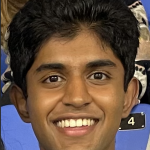 Annudesh Liyanage, UBC student and NSERC USRA awardee |
Annudesh graduated from UBC with a degree in physics and math. As part of the UBC LIGO GSpyNetTree team, his project focused on generating the training sets for a convolutional neural network used to distinguish between glitches and signals. After having trained the model, he conducted validation studies looking at how robust the algorithm’s predictions are to data with persistent noise features subtracted, exotic glitches not included in the training set, and signals from different sky positions and orientations. Annudesh’s work directly enabled the success of the GSpyNetTree algorithm in the fourth LIGO-Virgo-KAGRA observing run, as reported in a paper in Classical and Quantum Gravity. Annudesh is now completing his medical degree at UBC. |
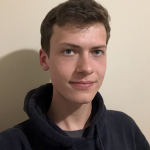 Kye Emond, Simon Fraser University student and NSERC USRA awardee |
As an NSERC USRA awardee in 2022, Kye developed new methods of data analysis for LISA, the upcoming space-based gravitational-wave observatory. Kye investigated extracting the parameters of binary systems emitting continuous gravitational waves from data with noise, glitches, and gaps, using LISA Mock Data Challenge data simulated with glitch models developed with results from the LISA Pathfinder mission. Kye’s code served as the basis for future studies by honours thesis student Matthew Smith and USRA awardee Beth Flanagan. Kye is currently finishing his degree in physics and mathematics at Simon Fraser. |
 Helen Du, UBC alum |
Helen Du worked on her honours thesis with the gravitational wave astrophysics group. Her research project advanced methods to search for continuous gravitational waves from non-axisymmetric neutron stars, using more sensitive match-filtering based methods. Her work involved employing frequency tracking for a large number of candidates using Hidden Markov/Viterbi algorithms, followed by MCMC-based analyses with PyFStat to follow up potential continuous wave sources. Her work led to another study by Alan Knee, recently published in Phys. Rev. D. |
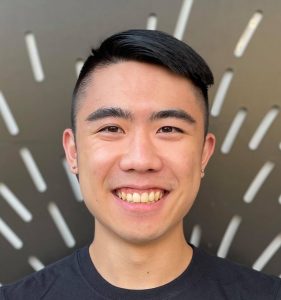 Julian Ding, UBC alum |
Julian graduated from a combined major in computer science and physics at UBC in 2022. His past research with the Gravitational Waves group focused on a model-free anomaly detection method for time series data called the Temporal Outlier Factor, which led to a paper in Classical and Quantum Gravity. He led early development on the Gravity Spy Convolutional Neural Network Decision Tree (GSpyNetTree), a multi-classifier machine learning model whose goal is to distinguish between real gravitational wave signals (chirps) and detector/terrestrial noise artifacts (glitches) by interpreting spectrogram images. |
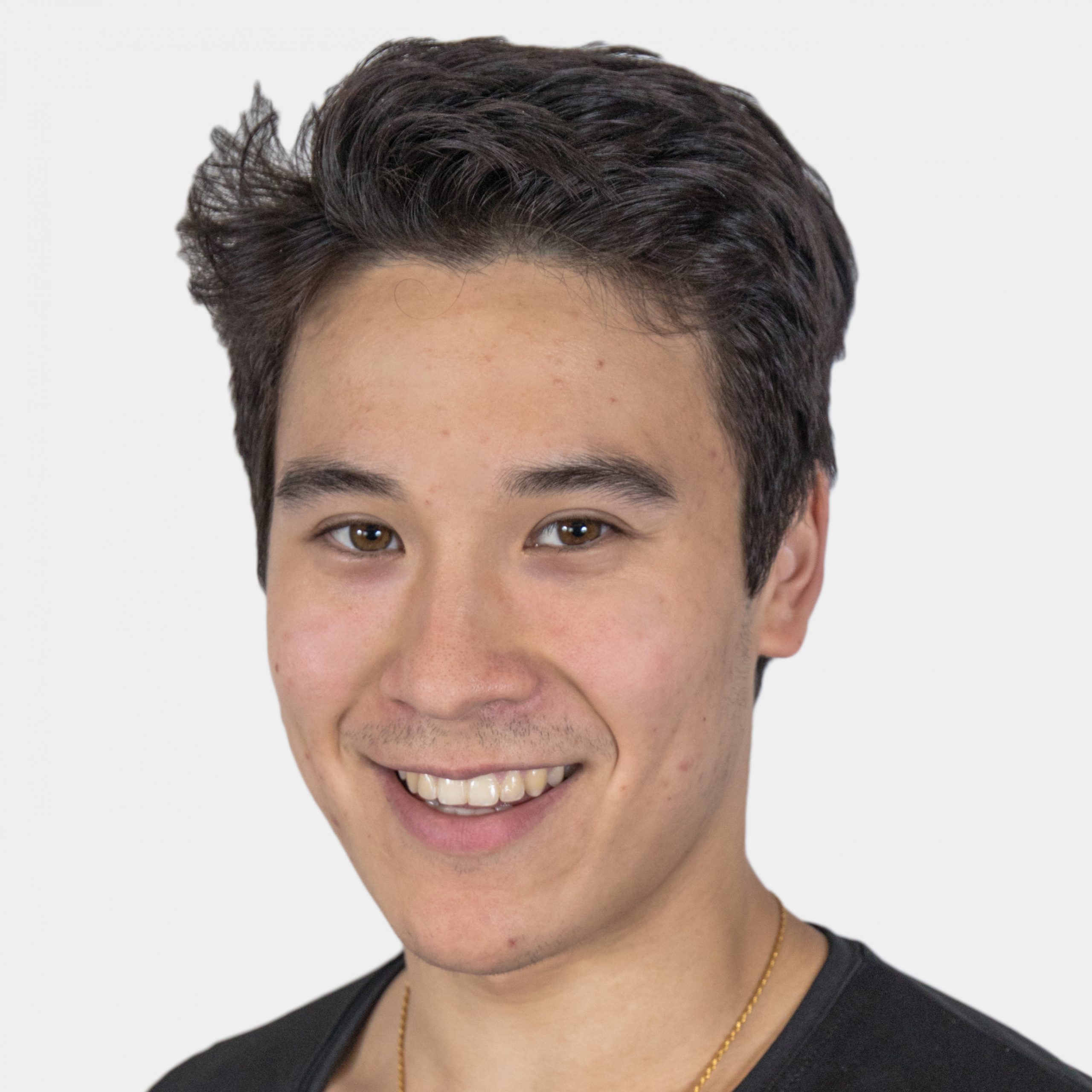 Seraphim Jarov, UBC Mathematics PhD student |
Seraphim worked with the UBC LIGO team as an NSERC USRA awardee in the summer of 202. His work improved our ability to safely distinguish between noise transients (glitches) and real astrophysical events in our detector data with Gravity Spy, a convolutional neural network used to identify different glitch types. He tested Gravity Spy’s performance by simulating waveforms and retraining Gravity Spy’s model on enriched training sets to explore the potential for applying this tool as a signal vs. glitch classification method for the next LIGO-Virgo-KAGRA observing run. He produced a paper on his work: arXiv 2307.15867. Seraphim is now a PhD student in UBC’s Department of Mathematics. |
 Katie Rink, UBC alum |
Katie graduated from UBC in 2022 after working with the UBC LIGO team as an undergraduate student researcher for over a year. The primary focus of her research with the UBC LIGO team and LIGO Detector Characterization group was to investigate the effects of detector upgrades implemented throughout the third observing run (O3). For her masters research at UMass Dartmouth, Katie developed a discontinuous Galerkin solver for the Teukolsky equations to implement extreme mass ratio inspiral (EMRI) models into the SpECTRE code database. As a PhD Fellow at the University of Texas Austin, Katie works with the UBC LIGO team to explore the impact of glitches on parameter estimation. |
Collaborators
- We work with Scott Oser (UBC/TRIUMF) and David Morrissey (TRIUMF) on LISA-related science.
- We are partnered with a pan-Canadian team of astronomers leveraging gravitational waves for multi-messenger astrophysics.
- We have teamed up with Professor of Computer Science Raymond Ng and the Data Science Institute at UBC to power our data science projects.
- Most members of the UBC GW astrophysics group are part of the LIGO group at UBC, which spans five labs across the departments of physics & astronomy and chemistry.
- The UBC LIGO group is part of the LIGO Scientific Collaboration.
- Some UBC GW astro members are members of the LISA Consortium and the UBC-TRIUMF LISA group.
- Some of our colleagues at UBC research lower frequency gravitational-wave astronomy with Pulsar Timing Arrays.


